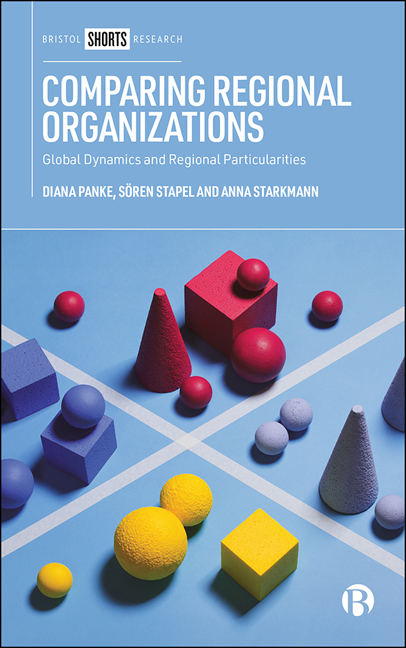Book contents
- Frontmatter
- Contents
- List of Figures and Tables
- Abbreviations
- Preface
- One Introduction
- Two Conceptual Framework and Measurement
- Three The Global Perspective
- Four Regional Organizations in Africa
- Five Regional Organizations in the Americas
- Six Regional Organizations in Asia
- Seven Regional Organizations in Europe
- Eight Conclusion
- Notes
- Appendix
- References
- Index
Six - Regional Organizations in Asia
Published online by Cambridge University Press: 12 March 2021
- Frontmatter
- Contents
- List of Figures and Tables
- Abbreviations
- Preface
- One Introduction
- Two Conceptual Framework and Measurement
- Three The Global Perspective
- Four Regional Organizations in Africa
- Five Regional Organizations in the Americas
- Six Regional Organizations in Asia
- Seven Regional Organizations in Europe
- Eight Conclusion
- Notes
- Appendix
- References
- Index
Summary
While only a few ROs existed shortly after the end of WWII, they have mushroomed in all regions over the past 70 years and sparked a revival of the comparative regionalism research agenda. A few ROs in Asia are the focus of research, such as ASEAN and the SCO (Ambrosio, 2008; Nesadurai, 2008; Nguitragool and Rüland, 2015; Dosch, 2017; Spandler, 2019; Scott-Smith, 2020), but most organizations do not attract much scholarly consideration. This is unfortunate as there are a dozen more ROs in the Asian region that deserve attention, especially from a systematic and comparative perspective (Spandler, 2020).
To overcome this shortcoming, this chapter provides an analysis of the particularities in the creation and dissolution of all 19 Asian ROs. It examines regional cooperation by studying how Asian ROs developed over time with respect to state membership and policy competencies. The chapter ends with reflections on where Asian ROs are placed in the typology of ROs. This typology is based on two dimensions, membership size and policy scope, with important implications for regional governance on a day-to-day basis (see Chapter 2).
Regionalism in Asia is not characterized by multiple waves of regional integration as observed in Europe and the Americas. This chapter points out not only that there is an inclination to address transnational problems in informal ways (Acharya, 1997; Kim, 2007), but also that Asian ROs have evolved incrementally since the end of the 1970s, becoming larger in size and broader in scope. Additionally, the analysis shows that all but two Asian ROs – Asia Cooperation Dialogue (ACD) and Asia-Pacific Economic Cooperation (APEC) – were initially small selective in character. By 2015, the small selective type still dominated (ten) but was complemented by three large encompassing and three small encompassing as well as one large selective RO.
Membership dynamics in Asian Ros
Since 1945, 19 ROs have been created in Asia and only two have been dissolved (Table 6.1). The oldest Asian RO is the Pacific Community (SPC), whose predecessor, the South Pacific Commission, was founded in February 1947 by Australia, New Zealand and the then colonial powers France, the United Kingdom (UK) (until 2004), the Netherlands (until 1962) and the US. SEATO was created in 1954 by Australia, New Zealand, Pakistan, the Philippines and Thailand as well as the UK, France and the US.
- Type
- Chapter
- Information
- Comparing Regional OrganizationsGlobal Dynamics and Regional Particularities, pp. 83 - 100Publisher: Bristol University PressPrint publication year: 2020



